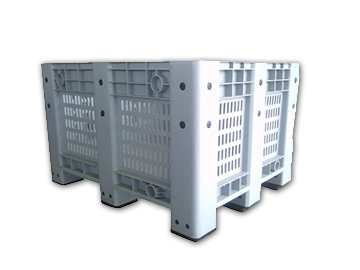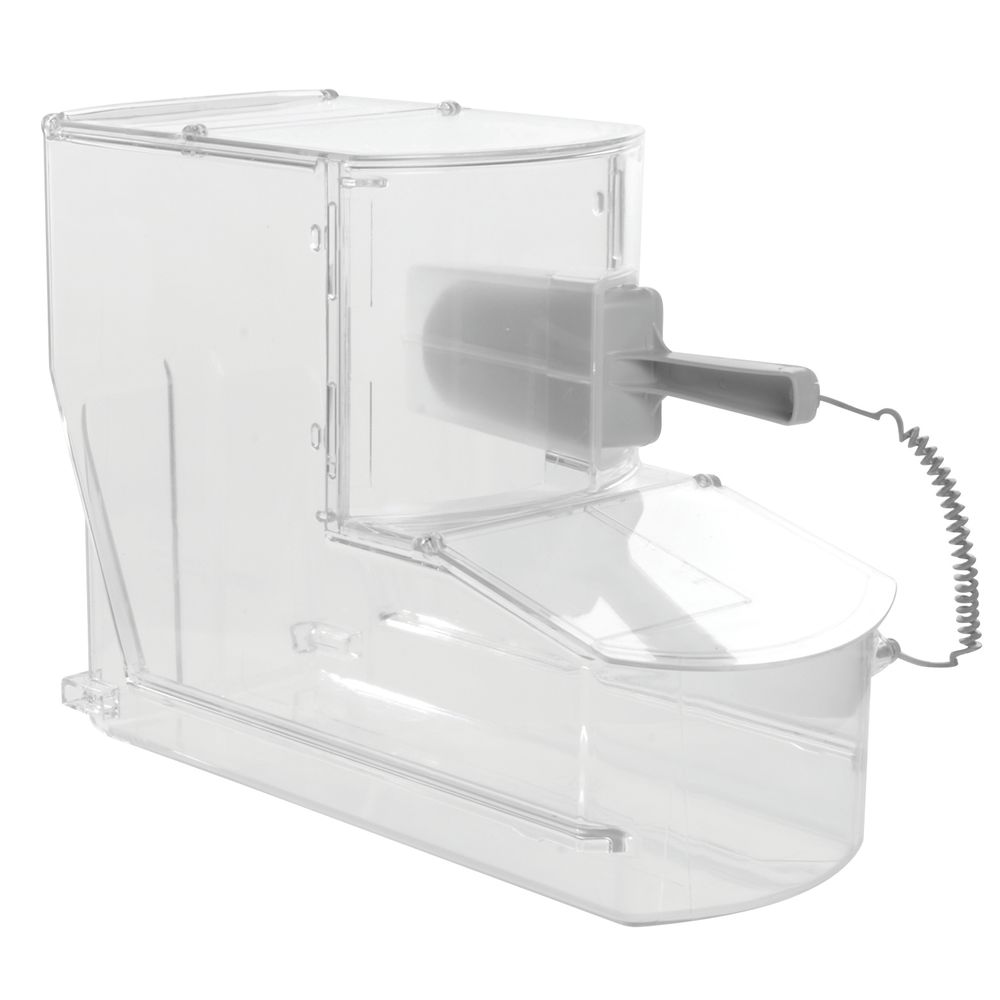How to maintain Bulk Plastic Containers for extended performance
All About Mass Plastic Containers: Advantages, Applications, and Sector Insights
Mass plastic containers play a considerable function in numerous sectors, supplying benefits that enhance performance and sustainability. Their lightweight nature minimizes shipping prices, while their resilience guarantees safe storage and transportation of diverse products. As firms progressively seek environment-friendly remedies, the need for these containers is growing. This increases essential inquiries regarding the products utilized and the trends affecting their style. What implications do these aspects have for the future of bulk plastic containers?
Benefits of Bulk Plastic Containers
Mass plastic containers use a multitude of advantages in numerous industries. Their light-weight design especially lowers transportation expenses, enabling effective logistics and easier handling. Additionally, these containers give toughness and resistance to weather elements, chemicals, and physical effect, guaranteeing the risk-free storage space and transport of products. The flexibility of mass plastic containers permits them to be molded into numerous shapes and sizes, accommodating particular industry requirements.

Typical Applications Throughout Industries
While different industries utilize bulk plastic containers, their applications are particularly popular in industries such as food and beverage, pharmaceuticals, agriculture, and production. In the food and beverage industry, these containers are vital for keeping and transferring items like grains, liquids, and prepared dishes, ensuring freshness and safety. The pharmaceutical field counts on bulk plastic containers for safe and secure storage space of vaccinations and medicines, keeping conformity with stringent regulations.
In farming, these containers help with reliable handling and transport of fruit and vegetables, plant foods, and chemicals, while also sustaining sustainable methods through recyclability. Production sectors make use of bulk plastic containers for parts storage space and assembly line procedures, advertising company and workflow performance. Furthermore, these containers serve a significant function in logistics and supply chain monitoring, simplifying the activity of goods throughout numerous industries. Generally, the versatility of bulk plastic containers makes them indispensable across several industries.
Material and Layout Considerations
When selecting bulk plastic containers, product and design considerations play a necessary role in making certain functionality and compliance with sector criteria. The option of product substantially impacts the container's longevity, weight ability, and resistance to environmental factors. Typical products consist of high-density polyethylene (HDPE) and polypropylene, known for their stamina and chemical resistance.
Layout aspects, such as form, closure, and size systems, also affect use. Containers with ergonomic handles and stackable designs improve storage space efficiency and ease of transport. Furthermore, attributes like venting or drain holes may be needed for details applications, enabling air blood circulation or fluid removal.
Compliance with security guidelines, such as FDA approvals for food-grade applications, is vital. plastic bulk containers. Overall, careful consideration of materials and layout can maximize efficiency and durability, making sure that mass plastic containers satisfy the diverse needs of various industries efficiently
Trends in Mass Plastic Container Use
As industries develop, the usage of bulk plastic containers is progressively influenced by sustainability and efficiency. Firms are choosing eco-friendly materials, such as recycled plastics, to decrease ecological impact while maintaining resilience. This shift is driven by customer need for regulatory stress and sustainable practices focused on decreasing plastic waste.
Furthermore, the trend towards automation in logistics and supply chain management is improving container layouts. Mass containers are currently being crafted for compatibility with automated systems, boosting functional effectiveness. Light-weight designs are likewise acquiring grip, as they minimize shipping expenses and power intake during transport.
Furthermore, customization is becoming a focal factor, allowing businesses to customize containers to particular demands, thus enhancing space and functionality. These patterns mirror a wider dedication to sustainability, development, and performance within various markets, ensuring that bulk plastic containers proceed to play an important duty in modern supply chains.
Finest Practices for Storage and Transport
Effective storage and transportation of mass plastic containers require adherence to finest techniques that boost safety and effectiveness. Initially, containers ought to be piled firmly, assuring that weight is evenly dispersed to avoid tipping or damages. Making use of pallets can facilitate much easier activity and shield the containers from ground dampness. Additionally, appropriate labeling is vital for quick identification and monitoring during transit.
Temperature control is an additional critical element; extremes can compromise the integrity of the materials. When required, it is recommended to store containers in a climate-controlled atmosphere. For transport, selecting proper automobiles developed for mass loads warranties stability and decreases threat during transit.
Regular inspections of containers before storage space and transport assistance identify any type of wear or damages, enabling timely upkeep or replacement. By complying with these best techniques, companies can enhance the lifecycle of bulk plastic containers while preserving functional effectiveness.
Regularly Asked Questions

Are Mass Plastic Containers Recyclable After Use?
Yes, bulk plastic containers are often recyclable after use. Recyclability depends on the material kind and neighborhood recycling programs. Proper cleansing and sorting are vital to ensure they are approved by recycling centers.

What Is the Life-span of Mass Plastic Containers?
The life-span of bulk plastic containers typically ranges from five to ten years, depending on use conditions, material high quality, and ecological factors. bulk plastic containers for sale. Correct maintenance can expand their resilience, making them a long-lasting storage space remedy
Can Bulk Plastic Containers Be Customized?
Yes, bulk plastic containers can be tailored. Manufacturers often offer choices for dimension, material, color, and branding, enabling businesses to tailor containers to their particular demands and enhance their product presentation and capability.
How Do Bulk Plastic Containers Contrast in Cost to Alternatives?
Bulk plastic containers usually supply a reduced expense compared to options like metal or glass, because of their lightweight nature and resilience. This makes them a cost-efficient choice for organizations requiring effective storage space solutions.
Are There Safety Regulations for Using Bulk Plastic Containers?

Mass plastic containers play a significant role in numerous markets, providing benefits that improve performance and sustainability. While numerous markets make use of bulk plastic containers, their applications are especially popular in sectors such as food and drink, pharmaceuticals, farming, and manufacturing. Production markets utilize bulk plastic containers for parts storage space and assembly line procedures, promoting organization and process efficiency. When picking mass plastic containers, product and design factors to consider play a crucial bulk plastic containers for sale function in guaranteeing performance and compliance with market standards. As markets evolve, the usage of bulk plastic containers is increasingly affected by sustainability and performance.